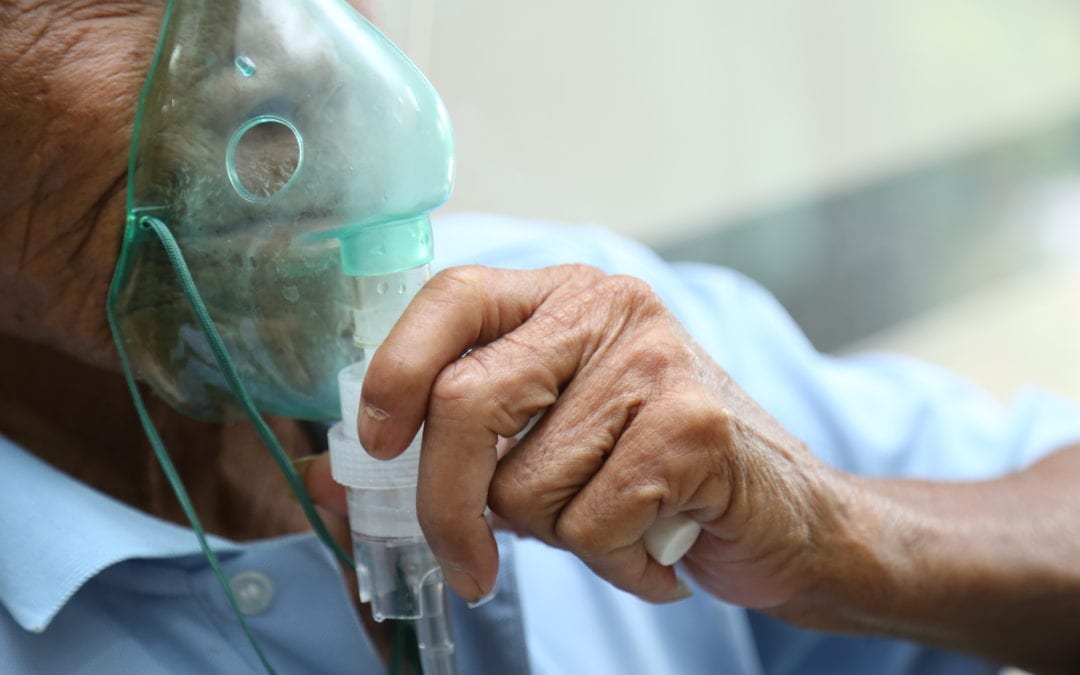Lungs. We all need them to survive but often don’t pay much attention to them. Give your lungs a little love by learning about lung disease and tips for keeping your lungs healthy. Then make a positive change to help your lungs function at their best.
The Importance of Lung Health
Lungs are necessary to survive; as part of the respiratory system, they help us breathe. All cells in the body need oxygen to live. Air contains oxygen and other gases; when we breathe it in, the air goes to our lungs. The oxygen is transferred to the bloodstream in the lungs and then carried throughout the body. Each cell takes in oxygen and releases carbon dioxide. The blood then carries the unwanted carbon dioxide back to the lungs; it’s then removed from the blood and exhaled. This process is called gas exchange.
Because the lungs are an important part of the body’s daily functioning, keeping them healthy is crucial for overall health.
Factors that Affect Lung Health
There are many things that irritate the lungs, including both indoor and outdoor pollutants. Common lung irritants include:
- Lead
- Radon
- Fire-retardants
- Formaldehyde
- Cleaning agent vapors
- Mold
- Pet dander
- Dust mites
- Pollen
- Carbon monoxide
- Secondhand smoke
- Ozone or smog
- Particulate matter
Poor air quality can contribute to or cause infections, lung disease and lung cancer. In particular, ozone and particulate matter can lead to the following health risks:
- Premature death
- Developmental harm
- Asthma attacks
- Wheezing and coughing
- Cardiovascular harm
- Shortness of breath
- Lung tissue redness and swelling
Tips for Avoiding Indoor Air Pollutants
Keep your indoor air clean and safe to breathe with these tips:
- Use a vacuum with a HEPA filter
- Mop with a microfiber mop
- Get house plants, which help purify the air
- Avoid air fresheners and scented candles
- Use fragrance-free products when possible
- Install a radon detector in your home
- Don’t let people smoke inside
- Keep humidity under 50 percent by using a dehumidifier as needed
- Avoid burning wood
Tips for Healthy Lungs
Prioritize your lungs with these tips for healthy lungs:
- Don’t smoke
- Avoid exposure to indoor and outdoor air pollutants
- Prevent infections by washing your hands often, avoiding crowds and getting a flu shot every year
- Get regular check ups to help prevent diseases or discover them early
- Engage in regular aerobic exercise to improve your lung capacity
Warning Signs
Many times the early symptoms of lung disease go unnoticed. Learning to pay attention to the early warning signs can help you get the treatment you need before the disease becomes serious. Watch for these early signs of lung disease and talk to your doctor if you notice any of them:
- A cough that lasts a month or longer
- Shortness of breath after little or no exertion
- Chronic mucus production
- Noisy breathing or wheezing
- Chronic chest pain
- Coughing up blood
Smoking and Lung Health
Smoking and using tobacco products pose a serious threat to your lungs and overall health. In the United States, smoking is the leading cause of preventable death and causes or contributes to many diseases. It affects lung health by contributing to a number of lung conditions, including emphysema, bronchitis, cardiopulmonary disease and lung cancer. If you smoke, quitting is the best thing you can do for your lungs.
Tips for Quitting Smoking
If you smoke and are ready to quit, consider these tips to help on your journey to healthier lungs:
- Make a plan
- Know your reasons for quitting to stay motivated
- Realize it’s never too late to quit
- Learn from past experiences; if you have tried to quit in the past, use what you learned from that and try something different this time
- Get support from friends and family members
- Seek expert help from your doctor or other groups like the American Lung Association
- Try FDA-approved medications, like nicotine patches, and use them according to the directions
What to Expect as You Quit Smoking
It’s a difficult process to quit smoking, but it’s possible to achieve success. Preparing ahead of time can help you avoid discouragement and potential pitfalls, so here are some things to expect as you quit smoking:
- Quitting takes time, usually the first seven to ten days are the hardest
- You’ll face challenges like weight gain, urges to smoke and withdrawal symptoms
- You might start smoking again; instead of seeing this as failure, view it as one more step in the process and learn from it
Your lungs are a vital part of your body and contribute to your overall health. Give them some attention this month by making a change toward better lung health. Whether it’s quitting smoking, visiting a doctor at SLMA to talk about your lung health or working to make your indoor air cleaner, your lungs will thank you for the effort!

